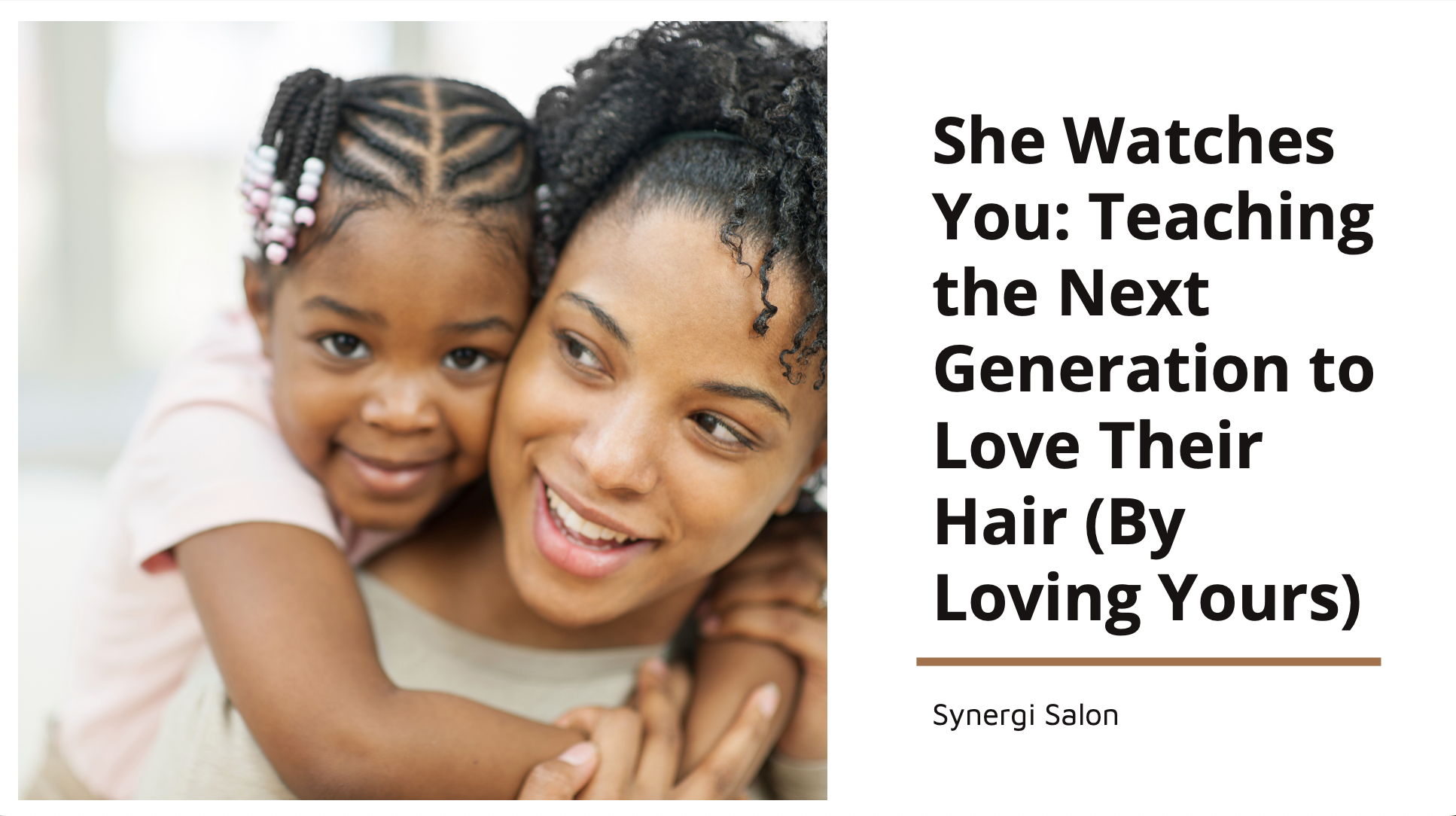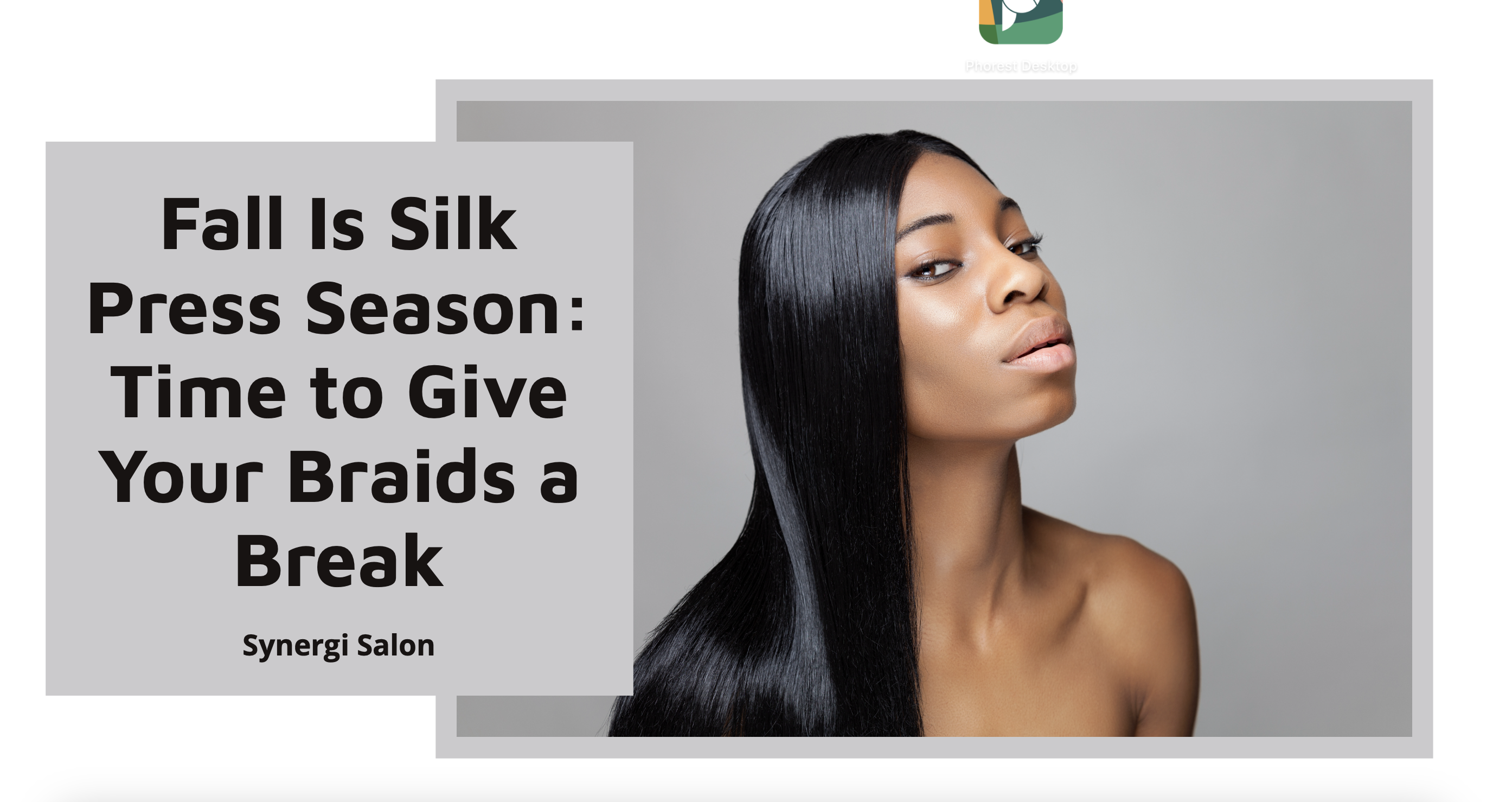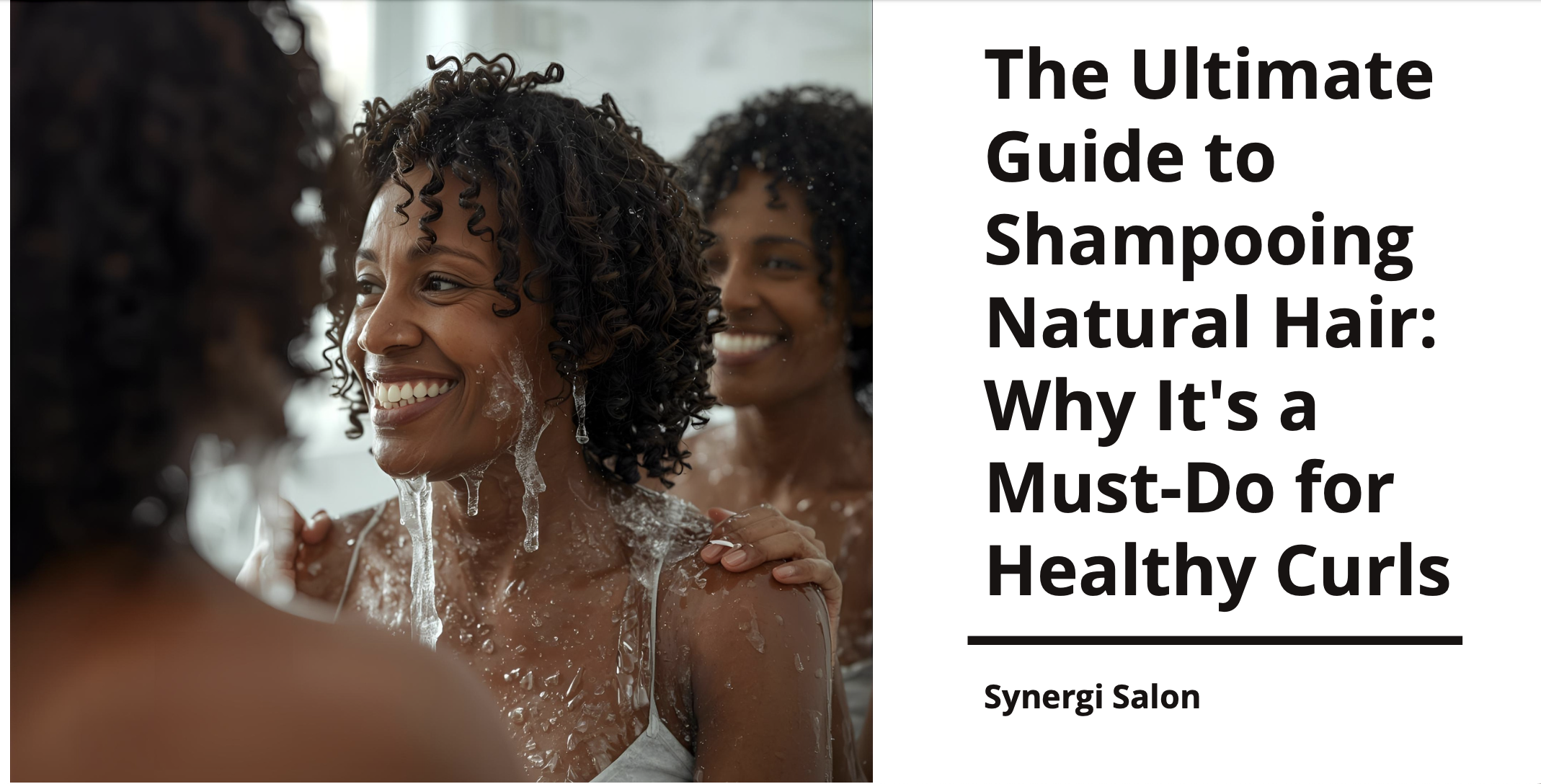She Watches You: Teaching the Next Generation to Love Their Hair (By Loving Yours)
There's a little pair of eyes that follows your every move. They watch as you get ready in the morning, as you navigate your day, and especially as you do your hair. Whether it’s a niece, a younger sister, a mentee, or a friend’s child, that little one with a budding crown of curls is a sponge, absorbing not just your words, but your actions, your frustrations, and your joys. And when it comes to their hair, you know that the most powerful lesson you can teach them about loving their natural texture starts with how you love yours.
It's not always easy, is it? We, as women of color, often grow up in a world that subtly (or not so subtly) tells us our hair isn't "good enough" in its natural state. We've navigated perms, hot combs, societal pressures, and the constant pursuit of a more "manageable" or "acceptable" look. But for the next generation, it's time to break that cycle. It's time to give them a foundation of self-love and hair acceptance that we might have had to fight for ourselves.
So, what messages are you consciously (and unconsciously) teaching them about their hair? Here’s what you can focus on:
1. Affirmation Through Admiration (Not Comparison)
Don't let them hear you complain about your hair. Instead, make it a point to say things like, "Oh, look at these beautiful coils today!" or "My hair is feeling so strong and healthy." When they see you admiring your own hair, they learn to see the beauty in their hair.
Also, avoid comparing their hair to anyone else's—not yours, not their friends', not celebrities'. Their hair is theirs, and it’s perfect just as it is.
2. Hair Care as Self-Care, Not a Chore
For years, wash day felt like a battle. Now, you can reframe it. "It's time to nourish our hair!" you can say. Put on music, talk, and let them even "help" by holding a comb or squirting water into the bowl. Explain why you're doing each step: "This conditioner is going to make our hair super soft," or "We're gently detangling to keep our curls healthy."
When they see you treating your hair with patience and care, they learn that their hair deserves that same gentle touch. It's about a ritual of love, not a tedious task to be rushed through.
3. Embracing Versatility and Identity
Wear your hair in many ways—defined curls, a puff, a sleek bun, and yes, sometimes a silk press. You want them to see that their natural hair is versatile and beautiful in all its forms. When you switch styles, explain why and how it makes you feel.
"Today, I'm wearing my hair in a puff because it's easy and lets my curls spring up!" or "I'm going to try a new twist-out style tonight, won't that be fun to see in the morning?" You want them to understand that their hair is an extension of their identity, and they have the freedom to express themselves through it, without judgment.
4. Celebrating "Hair Wins" and Navigating "Hair Fails"
Not every hair day is perfect, and that's okay. When you have a "bad hair day," you might say, "My hair isn't doing exactly what I wanted today, but that's alright! We'll try something different tomorrow." Show them how to pivot and problem-solve rather than get frustrated and give up.
When you have a "hair win"—a particularly good curl day, a successful new style—celebrate it! "Look at these defined curls! We did a great job with our wash day!" These small celebrations reinforce the positive relationship you have with your hair.
5. Education Over Ignorance
Actively seek out books, shows, and toys that feature diverse hair textures. Talk about different curl patterns you see on others and acknowledge their beauty. Teach them the names of their own curl types and why certain products work best for them. Understanding their hair's unique qualities empowers them.
Ultimately, your goal is for the next generation to grow up seeing their natural hair as beautiful, strong, and a source of pride. You want them to feel confident in their curls, to understand how to care for them, and to know that they are perfectly, wonderfully, uniquely theirs. Because they're watching you, you strive every day to be the example of self-love and hair acceptance that you wish you'd seen more of when you were their age.
And when they look in the mirror, you hope they see not just their reflection, but the reflection of someone who loves their hair, and by extension, taught them to love theirs too.
‹ Back







